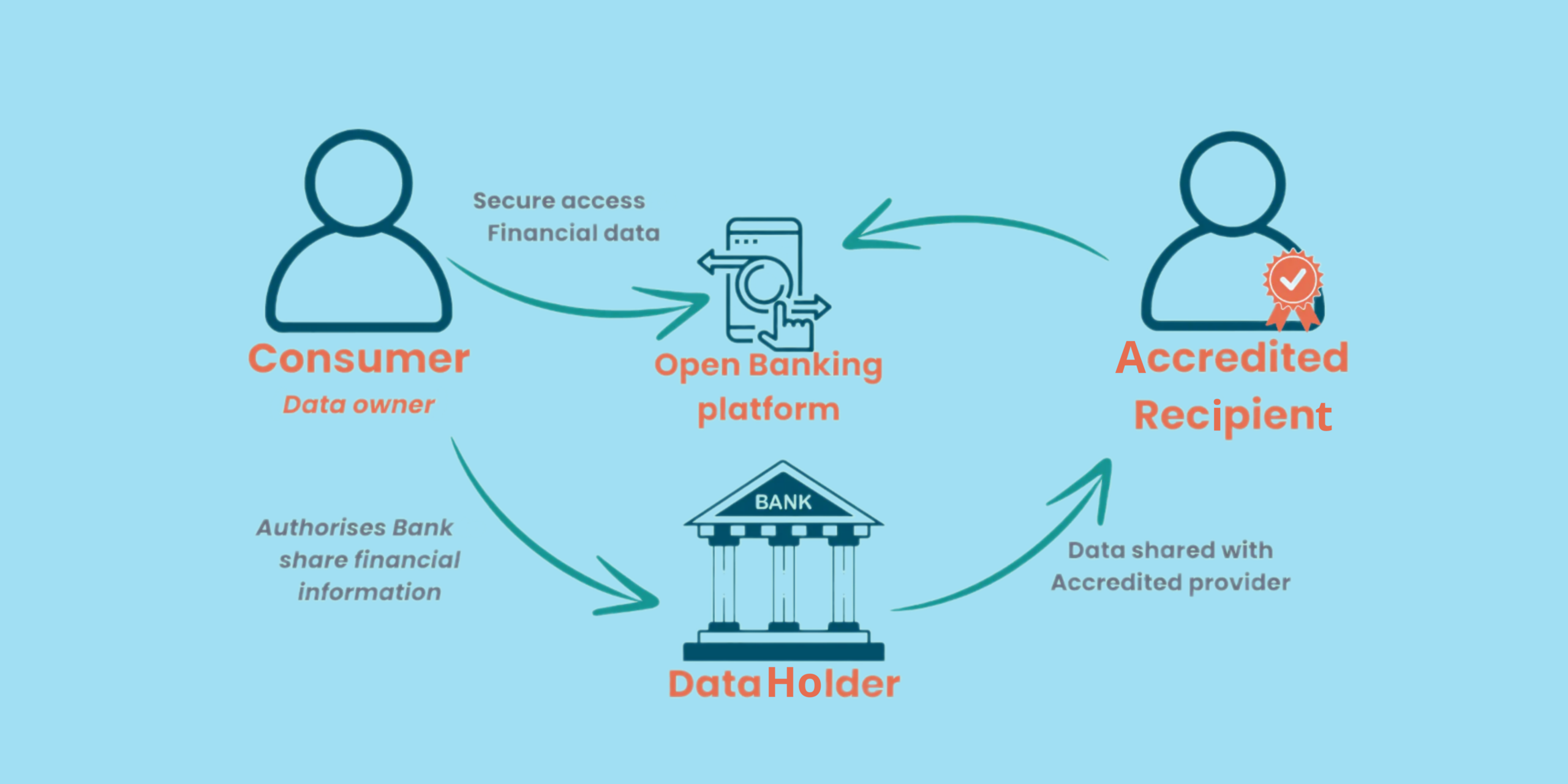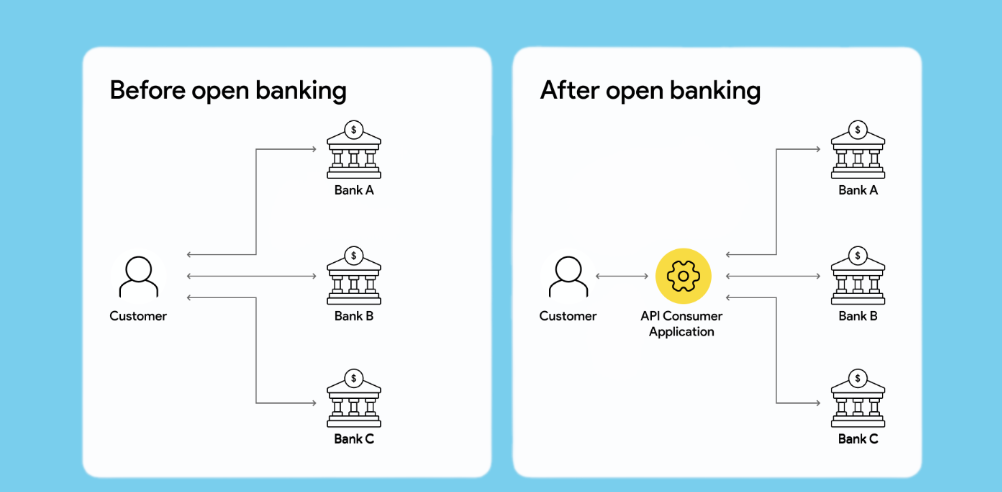In an era marked by digital transformation, the financial sector stands on the brink of a major evolutionary step known as open banking. This concept is not merely a trend but a comprehensive shift in how financial data is handled, shared, and utilized, promising to redefine the engagement between consumers, financial institutions, and new market entrants.
The Concept of Open Banking
Open banking refers to the practice of sharing financial information electronically, securely, and only under conditions that customers approve of. This is made possible through the usage of application programming interfaces (APIs), which allow third-party developers to build applications and services around the financial institution.
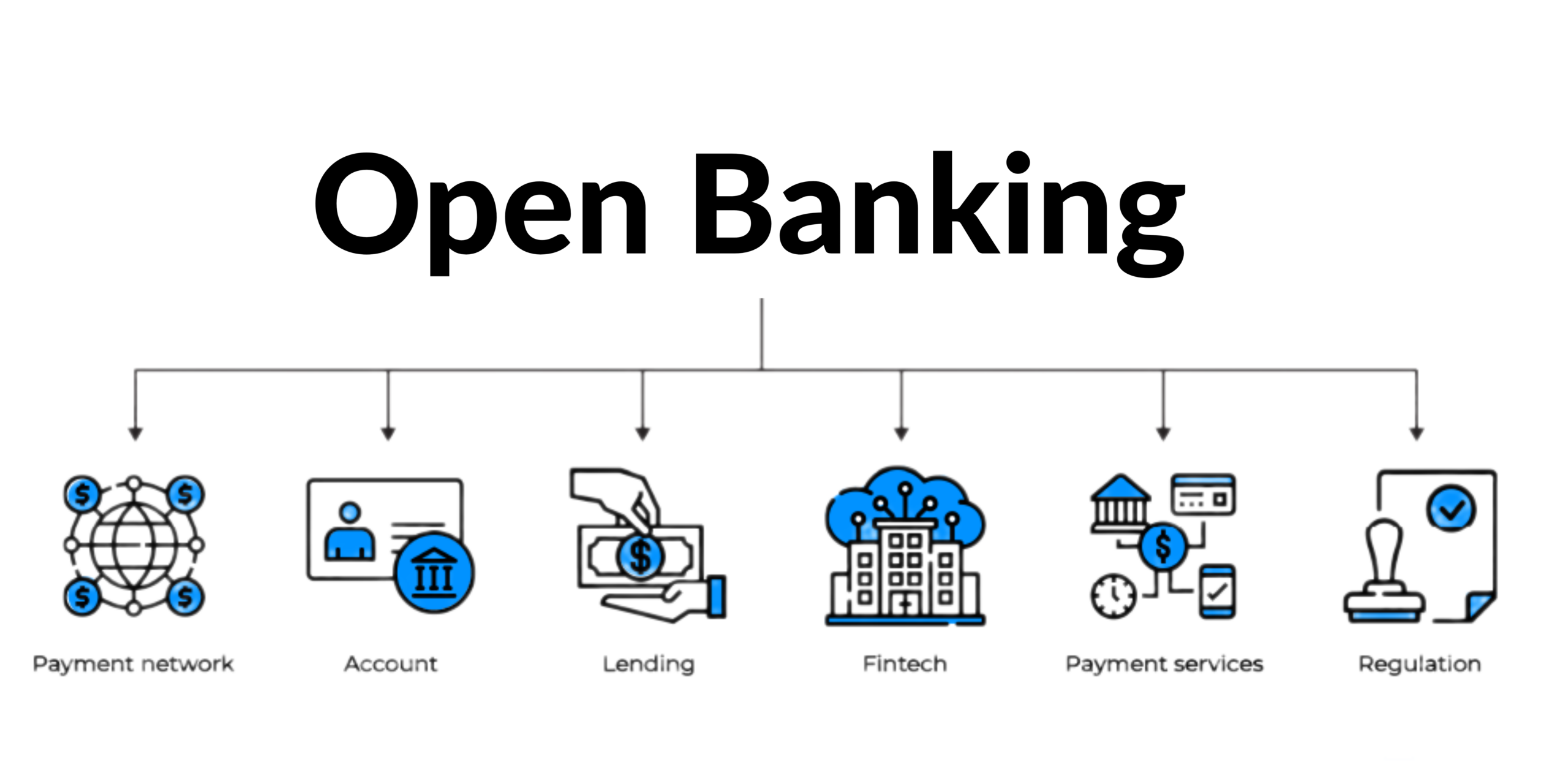
The Concept of Open Banking
Given the rising demand for personalized financial services and the global push for financial transparency, open banking has never been more relevant. It aligns with contemporary needs for technological agility in financial services and the consumer’s demand for greater control over their financial data.
Open Banking’s functionalities and benefits
This modern financial practice empowers a range of functionalities that include enhanced data sharing, direct payment initiation, and sophisticated financial management services. This innovation in banking is set to redefine the interaction between financial institutions, consumers, and new market entrants, promising a more dynamic and inclusive financial ecosystem.
Data Sharing
The ability for consumers to authorize third-party providers to access their financial data is a foundational functionality of open banking.
🔑 Personalized Financial Services: With access to rich financial data, third-party providers can offer highly personalized banking and financial services. This can include customized financial advice, tailored lending rates based on individual risk assessments, and personalized budgeting tools.
🔑 Enhanced Transparency: Consumers gain a clearer, comprehensive view of their financial status across different banks and financial institutions. This transparency helps individuals make more informed financial decisions.
Payment Initiation
Open banking allows third-party providers to initiate payments directly from a user’s bank account, bypassing traditional payment systems.
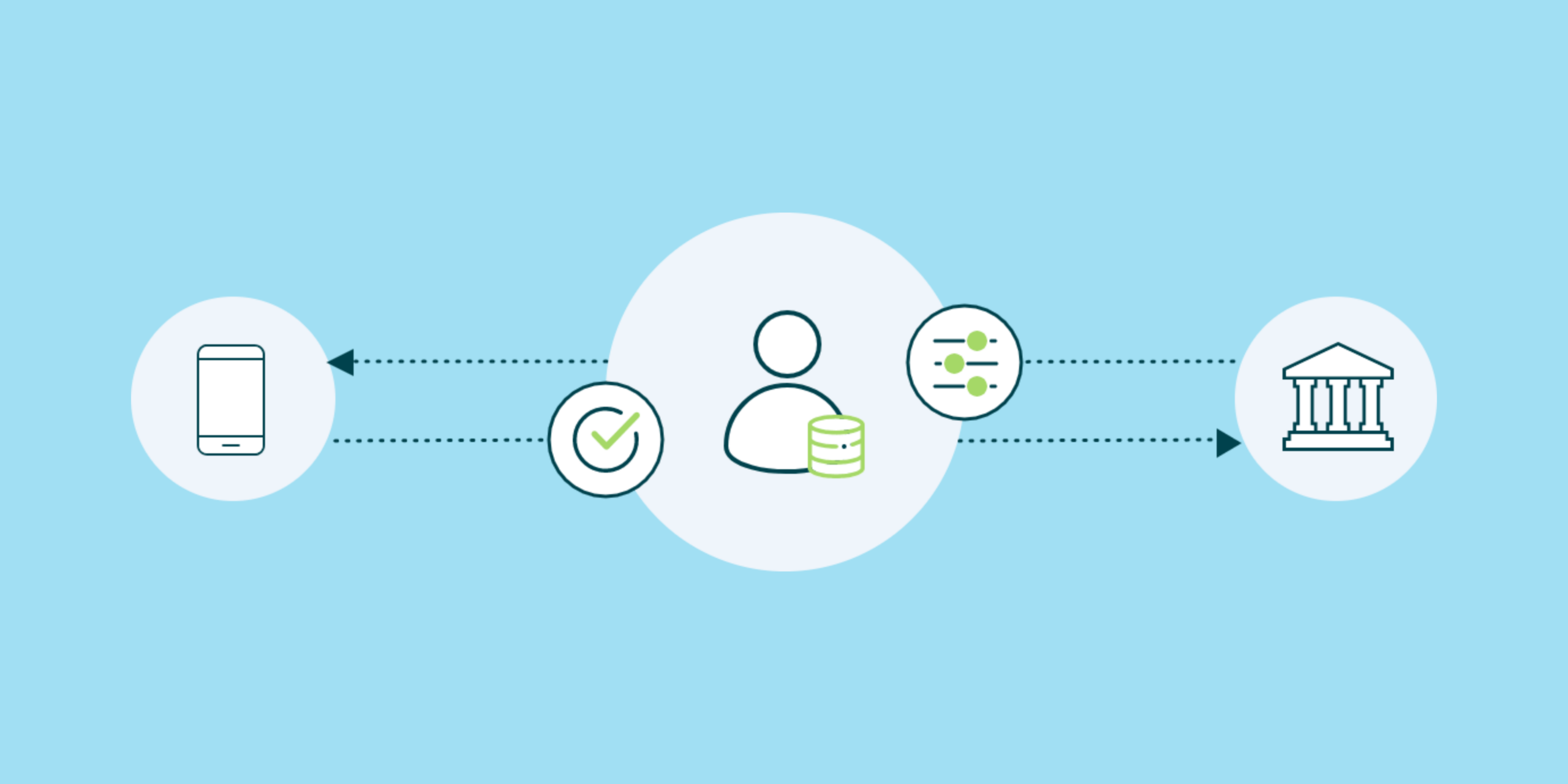
Payment Initiation
🔑 Lower Transaction Costs: By enabling payments that bypass credit and debit card networks, open banking can reduce transaction fees for merchants and potentially for consumers as well.
🔑 Streamlined Payments: Consumers enjoy a more seamless payment experience without the need to repeatedly enter payment details. This is particularly advantageous for recurring payments and can enhance the user experience in mobile and online environments.
Financial Management
Open banking facilitates comprehensive financial management services through third-party applications.
🔑 Consolidated Financial Overview: Consumers can view all their financial information in one place, regardless of how many accounts they have or with which institutions. This consolidated view makes it easier to manage finances effectively.
🔑 Better Financial Planning Tools: Enhanced data access allows for more sophisticated financial planning and analysis tools. Consumers can benefit from automated insights into spending habits, investment opportunities, and more detailed budgeting assistance.

Economic Growth and Inclusion Through Open Banking
Open banking has the potential to deliver broad economic benefits by fostering a more inclusive and competitive financial landscape. The democratization of financial data through open banking enables a surge in financial innovation, allowing new entrants and fintech startups to challenge traditional banking institutions. This competition drives the development of new products and services, tailored to meet diverse consumer needs and fill market gaps.
Moreover, open banking also significantly contributes to financial inclusion, a key economic driver. By simplifying access to financial services and creating opportunities for customized financial products, open banking reaches underserved populations, including those in rural or lower-income regions. This increased accessibility not only helps individuals manage their finances more effectively but also enables small businesses to thrive by facilitating smoother access to credit and financial resources.
Challenges and Concerns with Open Banking
Open banking, while revolutionary, brings with it challenges, notably in data security and integration complexities. The openness required to share financial data via APIs increases vulnerability to data breaches and cyberattacks, demanding stringent security protocols like encryption and secure authentication. Integrating these APIs with traditional banking systems also presents technical difficulties, requiring substantial investment and upgrades to ensure interoperability across diverse platforms and systems.
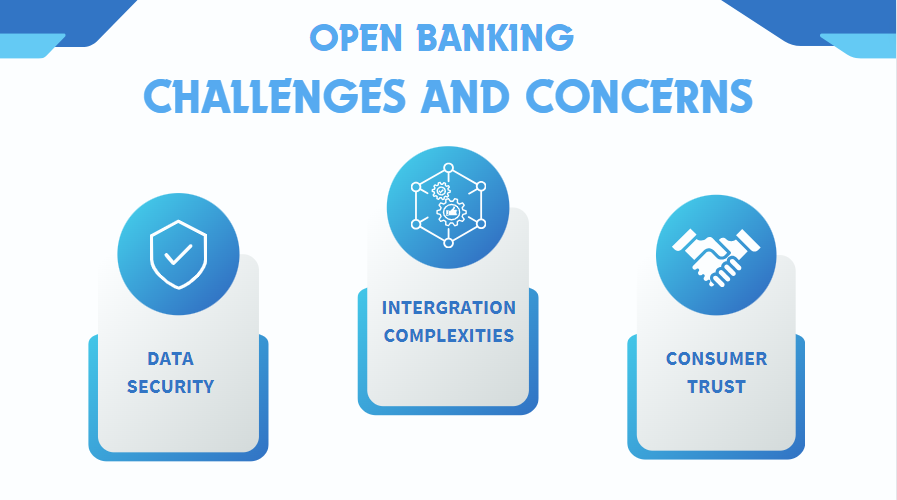
Additionally, consumer trust remains a pivotal issue; overcoming skepticism about data privacy and security is crucial to broader adoption. Success in open banking will depend on the collective effort of all stakeholders to address these challenges effectively, paving the way for a secure and inclusive financial ecosystem.
Prospects and Trends in Open Banking
The integrations of cutting-edge technologies like artificial intelligence (AI) and blockchain are expected to increase efficiency and offer new levels of service customization, potentially transforming customer interactions with financial services and broadening the scope of what is possible within the banking ecosystem.
The global expansion of open banking regulations is likely to spur widespread adoption across continents, creating a more interconnected global financial system. This expansion will likely lead to an increase in cross-border financial services and solutions that can adapt to various regulatory environments, helping to standardize banking operations worldwide.
As these developments unfold, the financial industry will need to remain agile, continuously adapting to embrace the full potential of open banking and its capacity to reshape financial services.
Discover the Future of Finance: Join SmartDev’s Upcoming Webinar
In this insightful session, our team of experts will delve into how leading banks are leveraging open APIs, data sharing, and innovative technologies to drive growth, enhance customer experiences, and stay ahead of the competition. We also discover practical insights and real-world case studies that demonstrate the tangible benefits of embracing open banking. Whether you’re a seasoned industry professional or a newcomer to the world of fintech, this webinar is your gateway to understanding the latest trends, best practices, and innovative strategies shaping the industry.
Whether you’re looking to optimize your existing open banking strategy or explore new possibilities for innovation, this webinar is your key to stay inspired, and ahead of the curve in the rapidly evolving world of finance. Don’t miss out – Be a friend on our Linkedin Page now to stay updated about our upcoming Webinar!
👉 Check out our webinar page for additional valuable insights and expertise.

